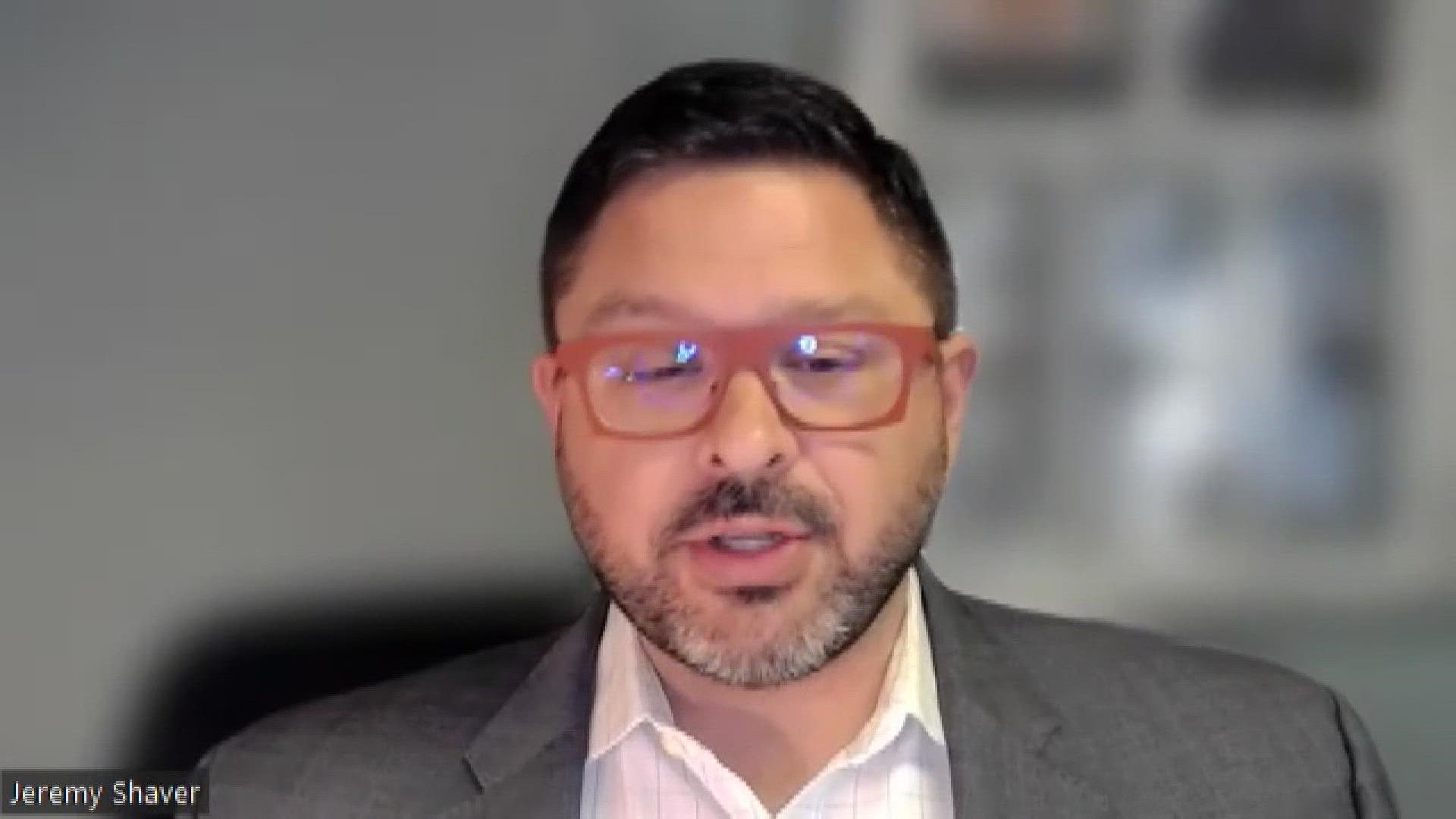COLORADO, USA — A survey of thousands of Coloradans conducted in 2022 by Hate Free Colorado and released Tuesday found that residents experienced many hate crimes that are not reported to law enforcement.
Nearly three in 10 respondents said they were the victim of a hate crime within the past five years. But only about one in five Coloradans alerted the authorities about what happened to them.
Jeremy Shaver, spokesman for Hate Free Colorado, said this underreporting phenomenon was well known before the survey, but this is the first time they can identify the extent of the problem.
“We also need to remember that many of the communities that are most frequently targeted with hate crimes are the ones that also have the lowest levels of trust and confidence in law enforcement right now,” he said. “So it is not shocking that hate crimes go largely unreported in Colorado."
Data from the Colorado Bureau of Investigation shows a 274% increase in reported hate crimes from 2017 to 2021. Shaver said the CBI numbers show more awareness from law enforcement on how to prosecute these crimes and a growing trend of hate in Colorado.
Created by Zack Newman.
CBI numbers don't capture all hate crimes
The survey shows that hateful acts may be more prevalent than CBI numbers capture.
The report said people choose not to report their experiences to police because they don’t think anyone will take them seriously, they think police don’t care and they have a general distrust of law enforcement.
“Police did NOTHING after a neighbor verbally harassed and physically attacked me and my roommate for walking our dogs and being ‘f*****s,’ continued to throw rocks at us from the street,” one survey respondent said. “We recorded [the] incident and spoke with police—they did nothing, not even an offer to file a report.”
The survey found transgender and non-binary Coloradans were more likely than their cisgender counterparts to be targeted for a hate crime. Half of transgender men and 49% of non-binary people said they experienced a bias-motivated crime or hate crime.
Of those who experienced a hate crime or bias-motivated incident, 92% said they faced verbal harassment, although most of the reports to police were because of a physical injury or property damage.
Shaver said that’s likely because those victims of higher degrees of violence need more help, but that verbal harassment also needs to be documented.
“Even those lower-level cases are important to report, because you want to address a situation before it escalates to a higher level of violence. That’s very critical,” Shaver said. “And it’s also important to establish a pattern.”
Some communities are even less likely to report a hate crime
According to the survey, a few groups were less likely to report a hate crime: those who are targeted due to their sexual orientation, who are Jewish or who identify as Asian.
“I have experienced everything from being ignored in restaurants, stores, and apartments refusing to rent to us,” one Asian American Pacific Islander respondent wrote in their survey. “It's not new and shouldn't surprise anyone… AAPI, especially immigrants and [the] old generation will most often experience hate and either internalize it or will not report it.”
Harry Budisidharta, executive director for the Asian Pacific Development Center, said he knew this problem was happening anecdotally, but this data helps the community understand the scope of the problem.
“The results from this survey validate a lot of the stories that we are hearing from the community,” he said. “We have always known that hate crimes [are] underreported in our community. We just didn’t know how bad it is.”
Budisidharta said members of the Asian community may not report hate crimes because they are afraid doing so could affect their immigration status, and possible language barriers.
He said a way to make people feel more comfortable reporting bias-motivated incidents is to dedicate resources toward police outreach and training.
“Oftentimes, these barriers can be overcome if the community already [has] trusting relationships with the police,” Budisidharta said. “And that is what’s missing right now.”
Both Budisidharta and Shaver called for a statewide hotline that would let people report hate crimes without needing to go to the police.
Shaver said each person’s story of a hateful encounter needs to be taken seriously. Survey respondents said they either left Colorado or were considering it based on their experiences.
"I have to relocate out of state due to the hate crimes done to me," said a 35-44-year-old Black woman in Aurora.
A synopsis of survey findings from Hate Free Colorado said recommended next steps also include law enforcement training for officers likely to interact with targeted groups, outreach to impacted groups with victim resources and education to those that are most frequently targeted for hate crimes.
Shaver said those facing an immediate threat should call 911. If the danger has passed and people still want to report, they should call the police agency’s non-emergency line. Shaver said that reporting an incident to police is the best way to access victim’s services.
Hate crime hotline information for Aurora, Boulder and Denver:
Aurora Police Department: 303-739-1661; stophate@auroragov.org
Boulder County District Attorney's Office: 303-441-1595; 303-441-3025
Denver Police Department: 720-913-6458; biascrimesinfo@denvergov.org
Reach investigative reporter Zack Newman through his phone at 303-548-9044. You can also call or text securely on Signal through that same number. Email: zack.newman@9news.com. Call or text is preferred over email.
RELATED: Denver South High School shows students video urging 'don't call police' in case of racist attack
SUGGESTED VIDEOS: Investigations & Crime

